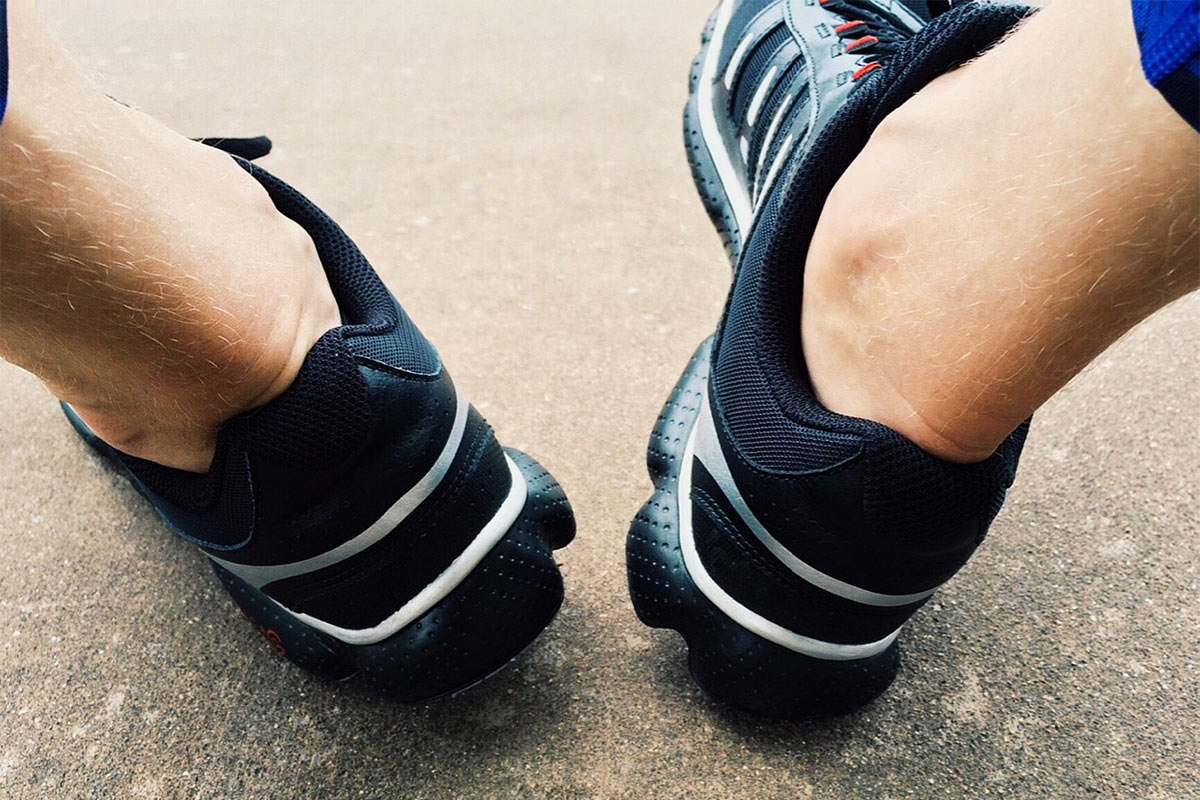For athletes, especially runners, being on your feet all the time takes its toll. When you are standing most of your weight ends up on your heels, so when heel pain strikes it can be frustrating and throw you off your game. Heel pain doesn’t have to keep you from running, there are some items and treatments you can use to keep you on the track or in the game.
Common Causes and Symptoms
Your feet are made up of multiple bones and joints and most of these are quite small, the largest of these is your heel. It can be difficult to narrow down exactly what the cause of your heel pain is, so here are a few of the more common causes and their symptoms.
Plantar Fasciitis
This condition often causes pain along the bottom of your foot and heel. It occurs when the ligament that connects your toes to your heel bone, your plantar fascia, becomes damaged. It commonly affects beginners in running or other athletic activity. It can also be caused by dramatically changing the mileage or amount of time you run, or a sudden change in your running surface.
Some symptoms of this condition are stiffness and pain, especially when you first wake up. Pain on the bottom of your foot and heel when doing things like climbing stairs or running. You may notice some stiffness and irritation when standing after sitting for a while.
Achilles Tendonitis
This injury results when the tissue responsible for connecting your calf muscle and your heel gets damaged or inflamed. It can also occur if the Achilles tendon is pulled or stretched to the point that it develops micro tears in the tissue. This can be caused by a direct impact to the back of your lower leg or it can happen slowly over time.
When suffering from this injury you may have pain towards the back of your heel and on the back of your lower leg just above your heel. This injury can also make walking painful and cause redness, tenderness, and bruising on the back side of your lower leg.
Other Factors
Both Achilles tendonitis and plantar fasciitis can often be the result of overusing the tissues required for running. Wearing worn out or old shoes that can’t support proper pronation put you at risk as does being overweight. Since all of your weight is supported by your feet, too much weight can cause pain and irritation. If you are having heel pain that gets too severe you should have it looked at by a podiatrist or doctor to help diagnose the exact cause.
Treatment and Prevention
There are a few things you can do at home when you’re experiencing heel pain. For example, wearing special orthotic inserts can help reduce your heel pain by providing extra cushioning and shock absorption for your feet. Heel pads are usually made from antimicrobial materials and may be either machine or hand washable. They are often designed to be odor-free and made from materials such as synthetic rubber or gel and some are latex-free. You can find heel pads online, in most pharmacies, and in sporting goods stores.
Applying an ice pack can additionally reduce some of the pain and swelling. Try to keep your foot elevated when possible, especially at night to alleviate inflammation and pain. And allow your body to rest so that it can repair itself. Don’t allow heel pain to stop you from doing what you love with the right treatment and equipment you’ll be back in no time.
You are reading Stop Heel Pain from Slowing You Down


